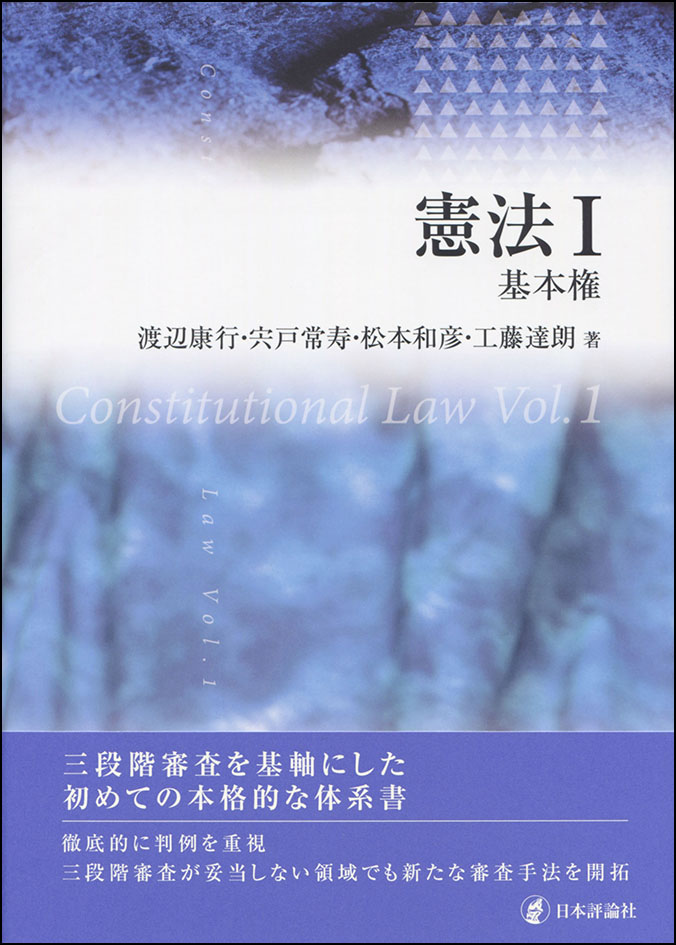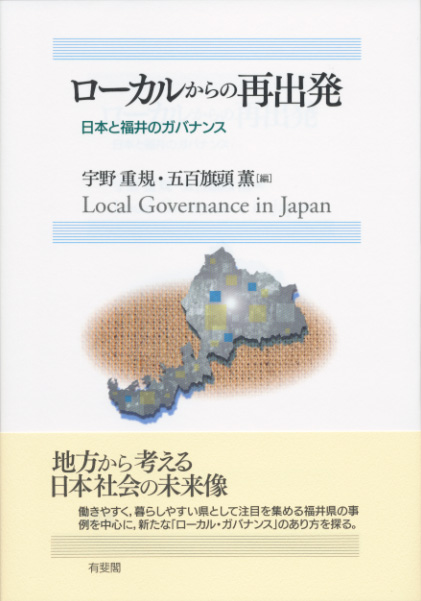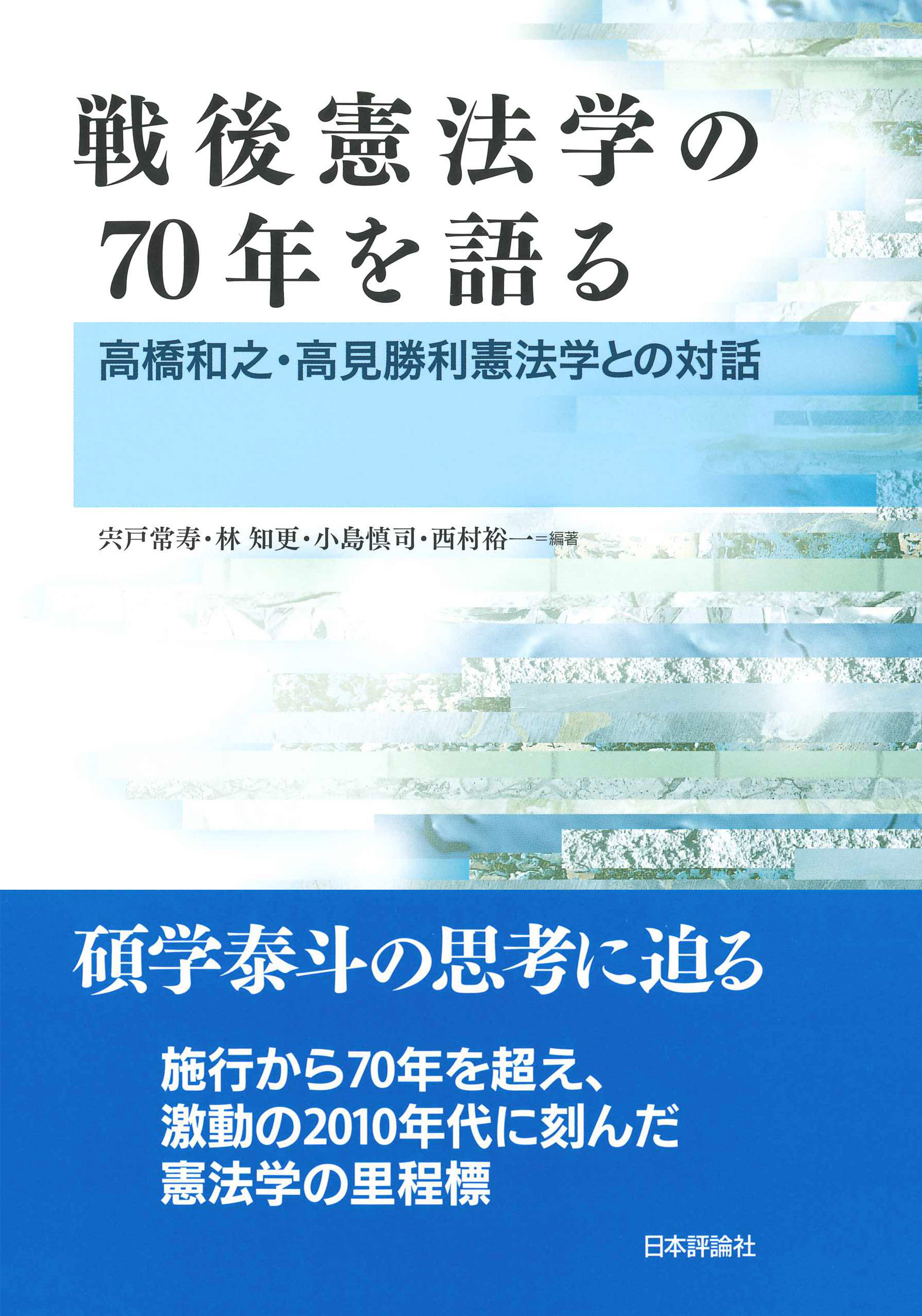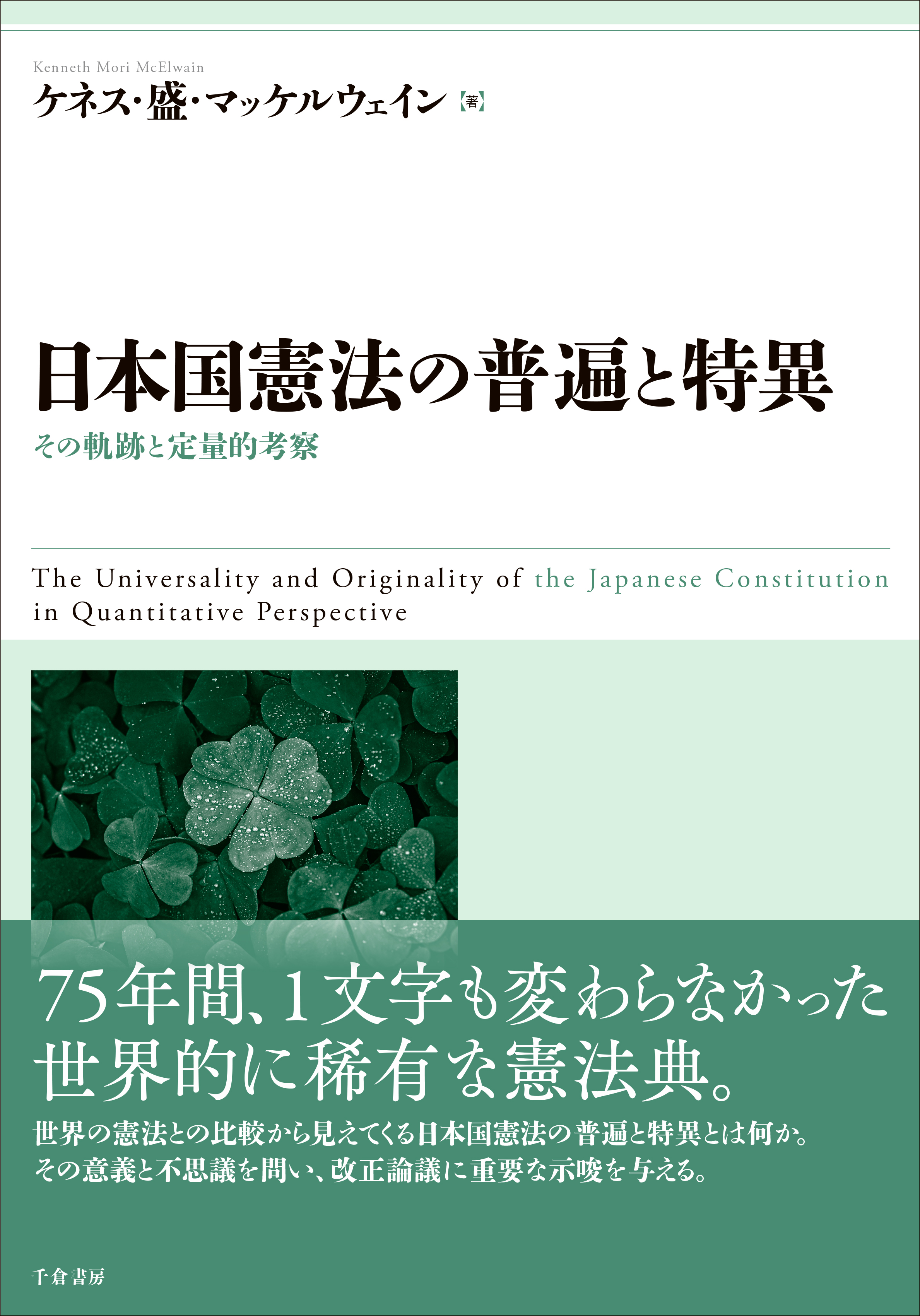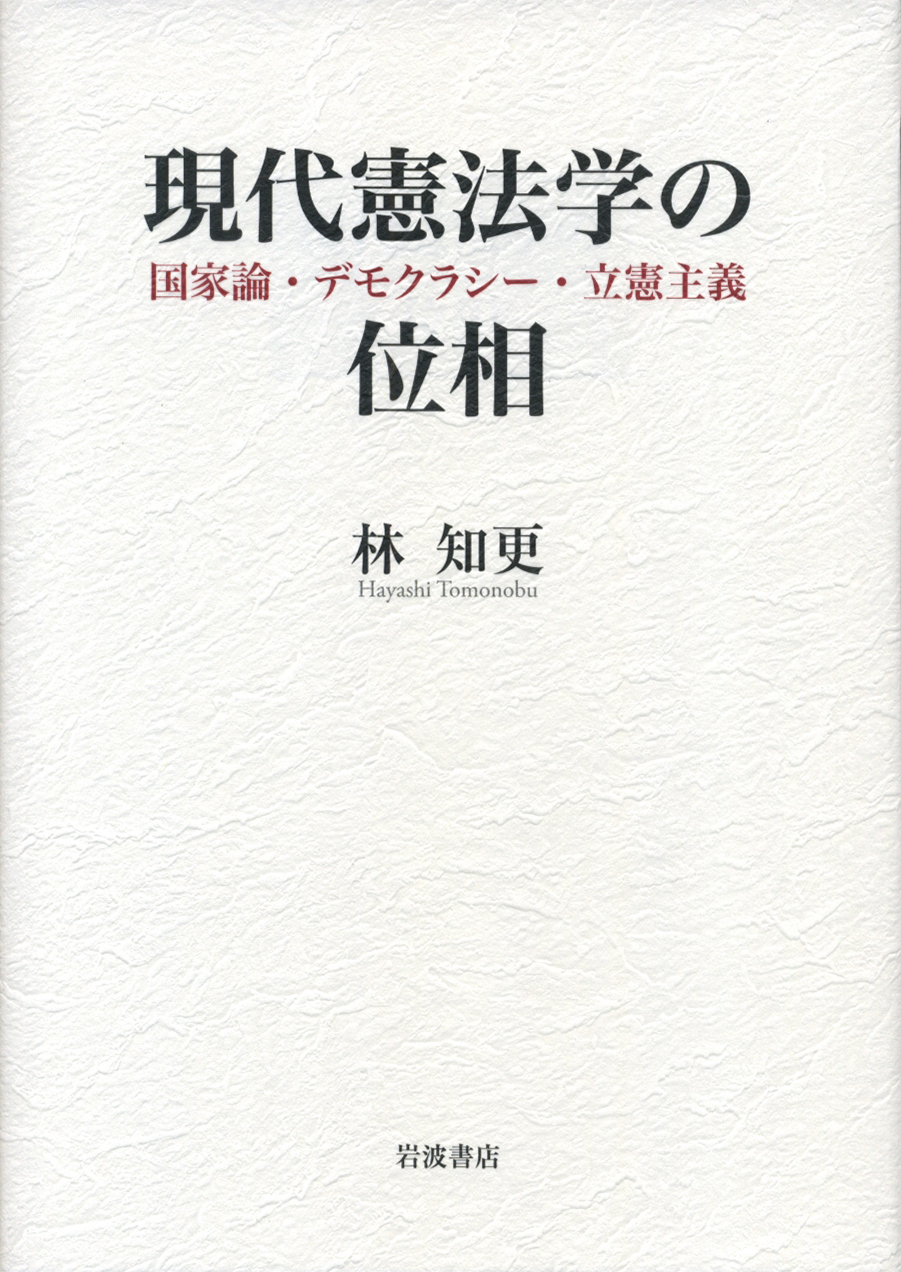
Title
Gendai kenpōgaku no isō (Modalities of Contemporary Constitutional Law: Theory of State, Democracy, and Constitutionalism)
Size
456 pages, A5 format, hardcover
Language
Japanese
Released
May 18, 2016
ISBN
978-4-00-061127-5
Published by
Iwanami Shoten, Publishers
Book Info
See Book Availability at Library
Japanese Page
This work Modalities of Contemporary Constitutional Law: Theory of State, Democracy, and Constitutionalism attempts to shed new light on issues involved in contemporary Japanese Constitutional Law. The approach is comparative, with a focus on the development of German Constitutional Law from the Weimar Republic to the present. In this context, we analyze themes such as formal structures of Constitutional Law (changes in roles played by fundamental concepts such as constitution, state, politics, and democratic government); aspects of democratic government (e.g., parliamentary rule, political parties, principles of democratic government); and the multi-tiered, prevailing political order (from the European Union to the regional administration). By comparing Japan’s situation with Germany’s, we analyze themes multilaterally across a range of areas, including fundamental human rights. This volume consists of fifteen major articles selected from the author’s publications from 2005 to 2015, systematically arranged and with three new chapters added. Thus, while each chapter stands alone to some extent, a number of overarching themes run through the entire work, which should be read as a single, independent whole, rather than browsed as a collection of stand-alone sections.
Given the work’s composition, offering a brief synopsis is extremely difficult, so let us confine our outline to a few issues. First, this volume’s overall premise is that the structure and composition of the academic field known as Constitutional Law varies by country and era. Additionally, even though one may be academically discussing the same legal apparatus called “constitution,” major differences appear in how modern Japan and Germany approach the phenomenon intellectually. Meanwhile, on the German side of the discussion, major changes in the meaning of “constitution” have spanned the period from Bismarck’s Reich to the Weimar Republic to the postwar Federal Republic, in particular since the 1960s. Thus, second, this volume clarifies how these changes came about and what they mean. The major concern is how postwar Germany achieved an expanded role for the constitution and a state under the rule of law through its constitutional court system and dramatic development of judicial precedent. Meanwhile, however, the fact that diverse, theoretically rich thinking on Constitutional Law during the Weimar period was lost in this transition must be conceded. What possibilities were thereby forfeited? What kind of theoretical logic has inherently survived through Constitutional Law’s progress and maturity achieved in the postwar period? In what form, and on what premises of such development, is it possible to recover this theoretical richness of Constitutional Law? This volume approaches such issues from a wealth of angles.
Thirdly, any consideration of German Constitutional Law naturally brings to mind its antithetical counterpart—Japanese Constitutional Law, which differs so much in its characteristic qualities. Differences apparent between Japan and Germany, if one may be so bold as to simplify to this extent, lie in missions and tasks society has assigned to Constitutional Law. In the context of various debates on Japanese Constitutional Law, the role of Constitutional Law in acting to demonstrate the constitution’s legitimacy has a certain influence. In other words, what seems to emerge from background analysis of academic Constitutional Law’s internal structure in Germany and Japan is the nature of each country’s developmental path during the postwar period, along with what roles and significance each country’s constitution assumed. Although this volume focuses on analysis of a certain range of issues directly related to its formal concerns, the author would be delighted if discussions in these pages provided food for thought about a wider range of larger issues. (translated from Japanese https://www.u-tokyo.ac.jp/biblioplaza/ja/B_00258.html)
(Written by HAYASHI Tomonobu, Professor, Institute of Social Science / 2018)



 Find a book
Find a book


